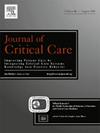重症监护中的人工智能:未来的路线图
IF 2.9
3区 医学
Q2 CRITICAL CARE MEDICINE
引用次数: 0
摘要
人工智能(AI)有可能通过加强患者护理、改善资源分配和减少临床医生的工作量来彻底改变重症监护医学。尽管前景光明,但许多人工智能应用仍然局限于科学研究,而不是融入日常临床实践。这份手稿的目的是帮助重症医师准备自己和他们的重症监护病房(icu)的人工智能实施。它提供了一个全面而实用的路线图,详细介绍了人工智能的方法、应用、负责任的人工智能原则、常见的障碍和实施策略。我们提出了一种基于风险的三级人工智能实施方法,从低风险低复杂性的行政人工智能开始,发展到后勤人工智能,最后将医疗人工智能集成为临床决策支持系统。这确保了人工智能技能的逐步积累,ICU的人工智能技术准备,增量价值演示以及与不断变化的监管标准的一致性。对于每个人工智能项目,应该在整个人工智能生命周期(从开发到验证到实现和扩展)中纳入负责任的人工智能原则,并充分解决这些原则。人工智能实施的常见障碍包括技术问题(如数据质量和互操作性问题)、组织挑战(如缺乏清晰的愿景和战略)和临床问题(如员工对人工智能的了解有限),这些都应该积极解决。通过遵循这一路线图,icu可以实现可持续的人工智能整合,最终改善患者的治疗效果和临床医生的体验。重症监护的未来在于负责任和战略性地采用人工智能,重症监护医生在制定实施过程中发挥核心作用。本文章由计算机程序翻译,如有差异,请以英文原文为准。

AI in critical care: A roadmap to the future
Artificial intelligence (AI) has the potential to revolutionize critical care medicine by enhancing patient care, improving resource allocation and reducing clinician workload. Despite this promise, many AI applications remain confined to scientific research rather than being integrated into everyday clinical practice. This manuscript aims to help intensivists prepare themselves and their intensive care units (ICUs) for AI implementation. It provides a comprehensive yet practical roadmap, detailing AI methods, applications, responsible AI principles, common roadblocks and implementation strategies.
We propose a three-tiered risk-based approach to AI implementation, starting with low-risk low-complexity administrative AI, progressing to logistical AI, and finally integrating medical AI as clinical decision support systems. This ensures a gradual build-up of AI skills, technical AI readiness of the ICU, incremental value demonstration and alignment with evolving regulatory standards. For each AI project, responsible AI principles should be incorporated and adequately addressed throughout the entire AI lifecycle, from development to validation to implementation and scaling. Common roadblocks for AI implementation including technical issues (such as data quality and interoperability issues), organizational challenges (such as lack of a clear vision and strategy), and clinical concerns (such as limited AI literacy among staff), should be addressed proactively.
By following this roadmap, ICUs can achieve sustainable AI integration, ultimately improving patient outcomes and clinician experience. The future of critical care lies in the responsible and strategic adoption of AI, with intensivists playing a central role in shaping its implementation.
求助全文
通过发布文献求助,成功后即可免费获取论文全文。
去求助
来源期刊

Journal of critical care
医学-危重病医学
CiteScore
8.60
自引率
2.70%
发文量
237
审稿时长
23 days
期刊介绍:
The Journal of Critical Care, the official publication of the World Federation of Societies of Intensive and Critical Care Medicine (WFSICCM), is a leading international, peer-reviewed journal providing original research, review articles, tutorials, and invited articles for physicians and allied health professionals involved in treating the critically ill. The Journal aims to improve patient care by furthering understanding of health systems research and its integration into clinical practice.
The Journal will include articles which discuss:
All aspects of health services research in critical care
System based practice in anesthesiology, perioperative and critical care medicine
The interface between anesthesiology, critical care medicine and pain
Integrating intraoperative management in preparation for postoperative critical care management and recovery
Optimizing patient management, i.e., exploring the interface between evidence-based principles or clinical insight into management and care of complex patients
The team approach in the OR and ICU
System-based research
Medical ethics
Technology in medicine
Seminars discussing current, state of the art, and sometimes controversial topics in anesthesiology, critical care medicine, and professional education
Residency Education.
 求助内容:
求助内容: 应助结果提醒方式:
应助结果提醒方式:


